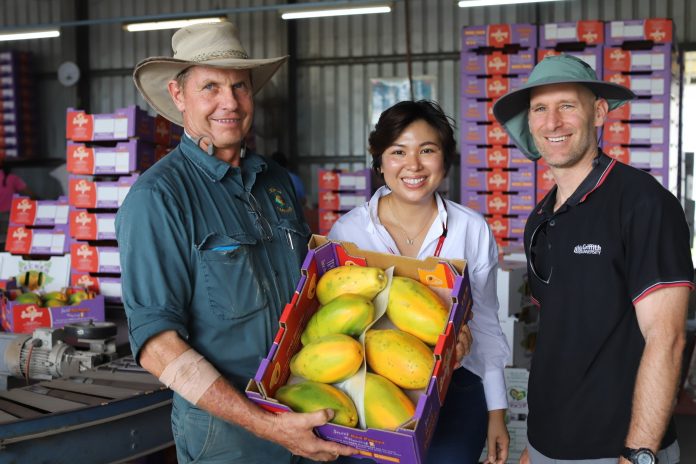Fruit that tastes, smells and looks delicious every time could become a reality through a new $7 million sensory genetics program.
The Australian program is delivered through Hort Innovation and led and co-funded by the University of Queensland’s Queensland Alliance for Agriculture and Food Innovation (QAAFI), the Queensland Department of Agriculture and Fisheries, and Griffith University. It is initially focusing on papaya, strawberries, mangoes, pineapples and passionfruit.
As part of the five-year project, a team of consumer, sensory and molecular scientists will work to determine exactly what today’s shoppers want in their fruit – across the characteristics of flavour, colour, size, texture and smell.
Hort Innovation Research and Development Manager Dr Vino Rajandran says the research aims to enhance the overall sensory experience of Australians and those in export markets each and every time they bite into an Aussie-grown fruit.
“Studies show one bad fruit eating experience can turn a shopper off buying a fruit or vegetable,” he says. “So, the ultimate situation for a grower is to produce a good quality fruit that consumers love every time. This will lead to less food waste, at home and along the supply chain.”
QAAFI Principal Research Fellow Professor Heather Smyth says there is a scarcity of reports that link consumer preferences of these traits with current market sectors or demographics.
“What we know is that consumer decisions are driven by personal beliefs; social aspects of production such as whether it is responsibly sourced and produced; price and finally the experience or sensory characteristics,” she says.
“What we do not know enough about is the complex interplay of genetics that underlie the physical and sensory characteristics of fruit. Once sensory profiles for existing, and potentially new, characteristics have been established, we can naturally breed and select new varieties with the aim to eventually make them available to growers and consumers.”



